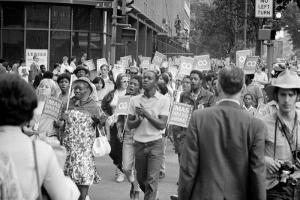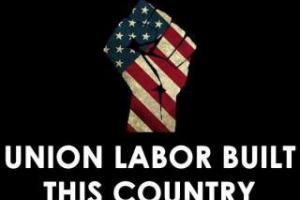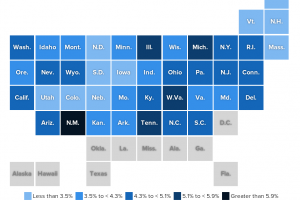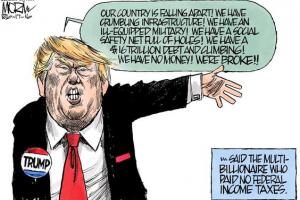Misleading Unemployment Numbers and the Neoliberal Ruse of “Labor Flexibility”
Truthout
 On December 4, prominent faith leaders announced plans for one of the largest waves of civil disobedience in U.S. history. Dubbed the “Poor People’s Campaign: A National Call for Moral Revival,” this effort will mark the 50th anniversary of a similar initiative in 1968 that was undercut by the assassination of Dr. Martin Luther King.
On December 4, prominent faith leaders announced plans for one of the largest waves of civil disobedience in U.S. history. Dubbed the “Poor People’s Campaign: A National Call for Moral Revival,” this effort will mark the 50th anniversary of a similar initiative in 1968 that was undercut by the assassination of Dr. Martin Luther King.
 The China-esqsue income for the general labor pool might not spark a backlash against the Chinese, Washington's favorite punching bag. Instead, it will favor future political backlashes against globalization and the corporations seen driving up inequality -- and driving down mobility -- because of it.
The China-esqsue income for the general labor pool might not spark a backlash against the Chinese, Washington's favorite punching bag. Instead, it will favor future political backlashes against globalization and the corporations seen driving up inequality -- and driving down mobility -- because of it.
 The labour share of the overall economic pie is at a post-second world war low, which is an enormous problem in an economy that is 70 per cent dependent on consumer spending. The demise of the traditional union movement (which represents only 10.7 per cent of the American workforce today, half of what it was in the early 1980s), is one of the biggest contributors to that problem.
The labour share of the overall economic pie is at a post-second world war low, which is an enormous problem in an economy that is 70 per cent dependent on consumer spending. The demise of the traditional union movement (which represents only 10.7 per cent of the American workforce today, half of what it was in the early 1980s), is one of the biggest contributors to that problem.
 The African American unemployment rate is at or below its pre-recession level in 11 states: Arkansas, California, Illinois, Indiana, Michigan, Mississippi, New Jersey, New York, North Carolina, Ohio, and South Carolina. However, a return to pre-recession levels in these states is barely a recovery: in all of these states, black unemployment rates were above 8.0 percent before the recession.
The African American unemployment rate is at or below its pre-recession level in 11 states: Arkansas, California, Illinois, Indiana, Michigan, Mississippi, New Jersey, New York, North Carolina, Ohio, and South Carolina. However, a return to pre-recession levels in these states is barely a recovery: in all of these states, black unemployment rates were above 8.0 percent before the recession.
 Among the report’s key findings: 100 companies enjoyed at least one year in which their federal income tax was zero or less, 24 companies paid zero taxes in four out of eight years, 18 companies paid no federal income tax over the eight-year period, Collectively, the 258 corporations enjoyed $513 billion in tax breaks over the last eight years. More than half of those tax breaks, $277 billion, went to just 25 of the most profitable corporations.
Among the report’s key findings: 100 companies enjoyed at least one year in which their federal income tax was zero or less, 24 companies paid zero taxes in four out of eight years, 18 companies paid no federal income tax over the eight-year period, Collectively, the 258 corporations enjoyed $513 billion in tax breaks over the last eight years. More than half of those tax breaks, $277 billion, went to just 25 of the most profitable corporations.
Spread the word